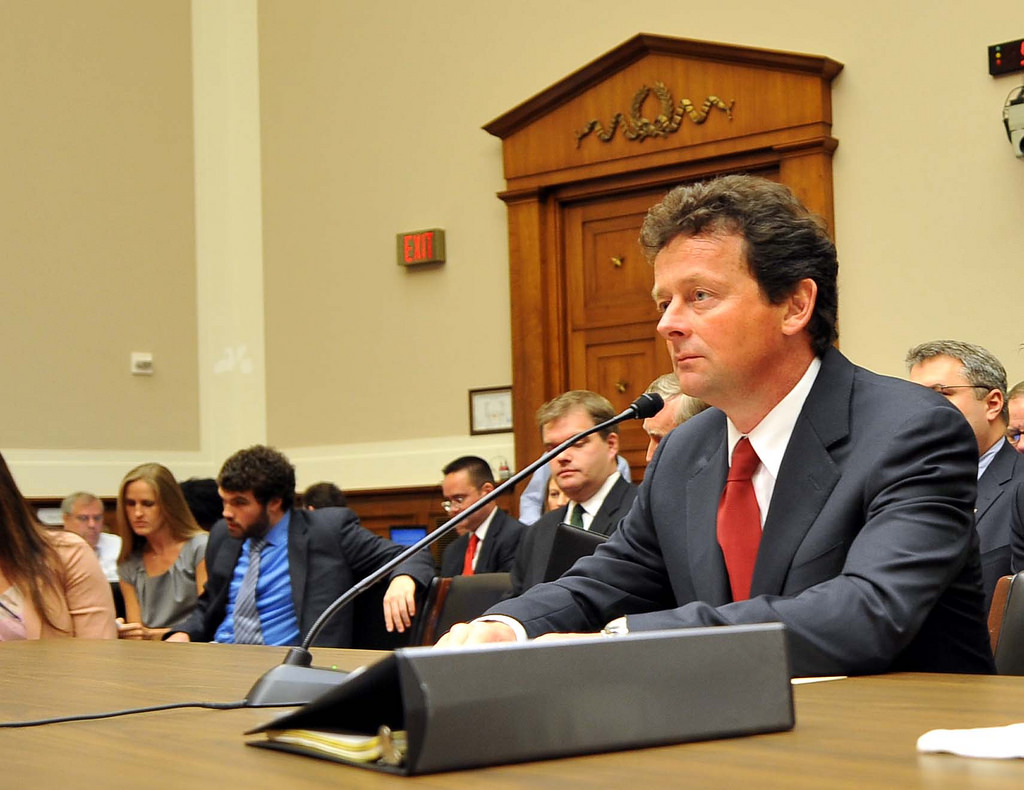The CEO's role in a brand crisis
In the middle of a crisis for your brand, who do you want facing the public and weathering the storm? The instinctual answer might be your CEO. However, even in the midst of an exceptionally terrible time for your brand, someone other than your CEO could be a better option to help communicate with the public. There are a variety of factors to consider, and the planning for these scenarios should happen long before a crisis occurs.
The debate
As the head of your company, the CEO probably already has a public presence. Whether or not they’re always the best spokesperson for your company, however, is up for debate.
Public perception of business executive duties and roles is one of the strongest arguments for having your CEO step up to the plate in a crisis. As the highest-ranking executive, consumers expect them to know what’s going on, care about finding a solution, and figure out how to implement this quickly. Especially with corporations, where CEOs are often well-paid, consumers assume CEOs are adept at managing their businesses and place a high priority on customer experience. In a brand crisis, having the person highest on the executive chain publicly address it can go a long way in quelling public upset. A CEO who appears absent (or worse, isn’t good with the media) can prolong the crisis.
On the other hand, however, certain crisis situations can benefit from having the CEO be present, but not serving as the “mouth-piece.” Interacting professionally with the media and public isn’t a skill that comes naturally, and a CEO not prepared to defend their brand while keeping public perception in mind can create a long-term brand reputation issue. Additionally, a CEO doing rounds of media interviews may appear to be doing nothing more than talking; if they’re always on TV, are they jumping in and doing any of the hard work to solve the problem? In some cases, it makes more sense to have the CEO on the ground, visibly working to solve the issue, and leave the speaking to a lower ranking executive or official spokesperson.
Preparing for a crisis with your CEO
Whether or not they’ll be the spokesperson, a CEO needs know the crisis communications plan inside and out well before an issue arises. Plans to address a crisis and the role top executives will play should be developed to address a wide variety of potential problems, and should be revisited and updated often. Key things to keep in mind:
- Transparency and authenticity above all else. “No comment” is not an option. Brands and their spokesperson need to be ready to be transparent about how the problem happened and what they’re doing to solve it. The response needs to show concern for the customers affected, authentically – don’t have a Tony Hayward And if your CEO does slip and make a statement like Hayward’s “I want my life back,” make sure they’re not photographed on their yacht a few days later.
- Media training. Even if they won’t be doing the press rounds and will be focusing on being hands on, media will likely still approach and cover the CEO’s activities during the crisis. CEOs should be fully media trained, with refresher courses frequently. Beyond speaking to journalists in person, this should include how to present themselves in public in case of any photos, and how to handle their personal social media channels.
- Understand the level of response required. Not all crises are 5-alarm fires. Adidas’ recent flub with their Boston Marathon congratulatory email was bad, but the majority of the public understood the intern. It didn’t require a groveling press tour from the CEO, and their response was quick, open, and authentic. United Airline’s recent troubles, however are definitely a serious crisis that requires the visibility of the CEO.
In times of crisis, the CEO certainly has a role – it just might not be that of spokesperson. As United Airlines’ Oscar Munoz has shown recently, this can backfire – and Munoz and the airline are both paying for it. Whether or not the situation calls for the CEO to be the spokesperson, the key thing to remember is that planning for a crisis can often avert one before it starts, and save your brand a lot of trouble.
